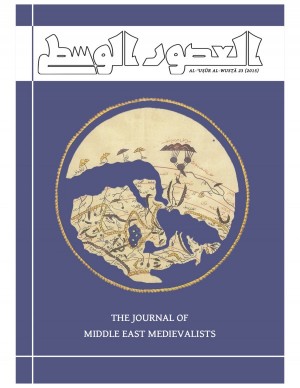Abstract
As Derrida charged, Plato’s famous declaration of speech’s superiority to writing would seem to have resonated with inheritor cultures similarly transitioning from orality to literacy, and especially the Islamicate; despite the explosion of writerly culture from the 2nd/8th century onward, Arabic scholarship continued to evince a categorical, if increasingly rhetorical, mistrust of writing. In the 8th/14th century, however, as the age of encyclopedism dawned throughout the Islamicate heartlands, the superiority of writing to speech was formally and categorically asserted by Arabic and Persian encyclopedists, including most prominently Ibn al-Akfānī (d. 749/1348) of Mamluk Egypt and Shams al-Dīn Āmulī (d. after 787/1352) of Ilkhanid Iran. It is hardly coincidental in this connection that the same century also witnessed the burgeoning popularity among scholarly and ruling elites of lettrism (ʿilm al-ḥurūf), kabbalah’s coeval cognate—the occult science that posited the cosmos itself as a text to be read, even rewritten. Synthesizing these literary and occult-scientifc currents, in the early 9th/15th century a network of Muslim neopythagoreanizing lettrists—chief among them Ibn Turka of Isfahan (d. 835/1432)—developed the frst formal metaphysics of writing.

This work is licensed under a Creative Commons Attribution-NonCommercial-NoDerivatives 4.0 International License.
Copyright (c) 2016 Matthew Melvin-Koushki

